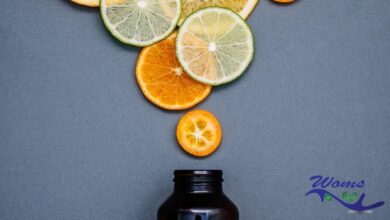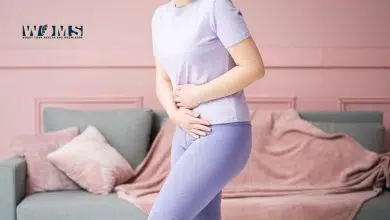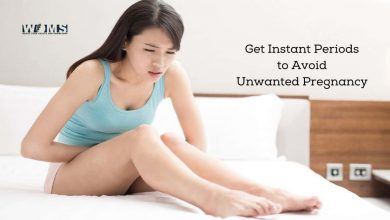How to Get Relief from Menopause Symptoms?

Menopause can cause symptoms in women that may last for months or years. According to their bodies, women experience different symptoms. These symptoms include irregular periods, sleeping issues, mood swings, hot flashes, chills, weight gain, etc. However, there are a number of different home remedies and treatment options to consider if menopause is upsetting your life.
If you are looking for a remedy to tackle those life-disrupting menopause symptoms, we have got you covered. Have a look at the given home remedies.
What is menarche and menopause?
People often get confused regarding the terms menarche and menopause.
Menarche is the first starting of menstruation in females during her adolescent period while menopause is the end of the menstruation cycle in females.
There is a huge difference between menarche and menopause. Some of the differences are:
- Menarche is the start of the menstrual cycle in females while menopause is the end.
- Menarche usually starts at the age of 11-16 years while menopause starts at the age of 45-50 years.
- In menarche bone mass increases while in menopause the bone mass decreases.
- Menarche marks the start of the reproductive cycle while menopause marks the end of the reproductive cycle.
Home remedies for relief from Menopause Symptoms
People search for remedies to get relief from Menopause. Here are some of the home remedies which will help you get the relief but you should also consider kegel balls or yoni eggs that can be used for kegel exercises to strengthen your pelvic floor muscles.
Increase the intake of zinc-rich food
Zinc is vital to support your nervous system, especially for women undergoing the menopause phase. Since even the slightest changes of zinc in your hormonal levels can hugely affect your nervous system.
You also need zinc for proper brain function and memory, and also for your libido. It is because these bodily systems are the most affected in menopause.
Therefore, you should increase your intake of zinc during menopause. You can look for zinc in seafood (if you’re into it), oysters, beef, superfood mushrooms, essential seeds and nuts, and dark chocolate. You can also incorporate spinach, pulses, and beans into your diet.
However, remember to keep them in moderate quantities as these are extremely high in zinc. Various healthy and zinc-loaded meals will get you through menopause smoothly.
Consume pumpkin seed oil
Tiny pumpkin seed is a huge powerhouse of nutrition, and it is an excellent choice to try. Do try to include them into your diet as much as possible. Also, the pumpkin seed oil is immensely rich in zinc, magnesium, iron, and other really important minerals vital for women during the menopause phase.
Pumpkin seeds are also a great source of phytoestrogens that are capable of producing estrogenic effects. These compounds are found in plants and are similar to estrogen present in humans.
Studies have shown that postmenopausal women, who consumed 2g of pumpkin seed oil per day for 12 weeks regularly, had decreased blood pressure and somewhat relief from their menopausal symptoms.
The benefits of pumpkin seeds do not end here. There are many other benefits of pumpkin seeds. They are rich in proteins. They contain omega-7, which is an essential oil that is important in preventing the dryness of the skin.
Therefore, the intake of pumpkin seeds helps to prevent dryness of the eyes and mouth. It also helps to deal with vaginal dryness as well.
Have Foods That Are High in Phytoestrogens
Phytoestrogens are naturally occurring plant compounds that act as an alternative to estrogen in the body, and work similarly to it. Therefore, these compounds are beneficial in balancing your hormones. With a high intake of phytoestrogens, menopausal women may rarely experience hot flashes.
Phytoestrogens are present in food such as beans, soybeans, and soy products, flaxseeds, sesame seeds, tofu, linseeds, tempeh, etc. However, the levels of phytoestrogen vary significantly depending on the methods of food processing.
Reduce Consumption of Processed Foods and Refined Sugar
A diet high in processed foods, and refined carbs and sugar can lead to sharp fluctuation in your blood sugar levels, thus, making you feel tired and irritable. It is also associated with a higher risk of depression and poor bone quality in postmenopausal women considerably.
Make lifestyle changes
One of the reasons for a painful and disruptive menopause phase among women is the shift to a sedentary lifestyle. Therefore, making gradual changes in your lifestyle may help to ease the symptoms and difficulties associated with menopause.
This may require you to kick off old and unhealthy habits. Quit smoking as it is the leading cause of hot flashes in menopausal women. Also, limit your alcohol intake to one alcoholic beverage in a day.
Cutting down on alcohol will also help you maintain your body weight at a healthy level since menopause triggers obesity.
Other lifestyle changes that can help reduce post-menopausal stress may include dressing lightly and in layers, and cutting down on the intake of potential triggers like caffeine and spicy foods.
Additional hot flashes triggers for many women also include hot beverages, hot weather, alcohol, stress, and even a warm room. Therefore, you should refrain from them as much as possible.
Additionally, you can also take various supplements, like calcium supplements for additional relief.
For Sexual Discomfort
Menopause involves a decrease in ovarian hormone production which may lead to vaginal dryness, and can ultimately affect your libido.
To deal with changes related to your sexual functioning, you should try using over-the-counter creams, water-based vaginal lubricants, or a silicone-based vaginal lubricant or moisturizer to help ease vaginal discomfort during intercourse.
Moreover, you can get them easily as no prescription is required to buy them. Also, for immediate relief, many women swear by coconut oil.
Moreover, since intimacy is important for your relationships, you can naturally boost your libido using herbs or other natural supplements. Ginkgo biloba is one such herbal remedy for menopause that not only boosts your sexual desire, but also helps to relieve some of the other psychological symptoms associated with menopause, which include brain and memory problems, and mild anxiety.
Lastly, women can maintain their vaginal health by indulging in regular painless sexual activity. This helps to promote blood flow to the genital area, thus, easing the pain around that area.
Do Exercise and Yoga
Indulging in regular exercise or yoga and maintaining a healthy diet have a vital role in minimizing the symptoms of menopause. It will also help to maintain overall good health.
Exercising regularly, along with meditation will help to reduce irritability accompanied by menopause and change in hormonal levels in the body. It even helps to reduce hot flashes in some women.
Also, do more pelvic floor muscle exercises, also called the Kegel exercises during your menopausal phase to strengthen your pelvic floor muscles and reduce urinary incontinence.
Whereas, doing yoga combined with physical activity, and meditation daily also alleviates mood, helps to balance hormonal levels in the body, and induces better sleep.
Do read: Benefits of Yoga for weight loss or Physical benefits of yoga
Symptoms of menopause
Menopause occurs in the 45- 50 age group of females. There are many symptoms shown prior to its beginning. The symptoms of menopause are:
- People experiences hot flushes
- It is difficult to sleep
- People experience night sweats.
- They have low moods or anxiety.
- People have a low sex drive.
- Irregular periods
Takeaway
Menarche is the first starting of menstruation in females during her adolescent period. You can face these symptoms of menopause like Irregular periods, Tiredness, Electric shocks, the sensation of the burning tongue, gum problems, digestive issues, having dry skin sleeping problems.
You can follow the given above home remedies to get relief from the symptoms.
FAQs
1. What are the stages of menopause?
The various stages of menopause are Pre-menopause, Menopause and Post-menopause.
2. What are the symptoms of menopause?
The symptoms of menopause are:
Irregular periods, Tiredness, Electric shocks, the sensation of the burning tongue, gum problems, digestive issues, having dry skin sleeping problems, hard to concentrate, dizziness, fatigue and hair loss, nails are brittle, muscle tightness, irregular heartbeat, depression, panic disorder, osteoporosis, allergies, irritability, body odor seems to be different and stress inconsistency.
3. What are the worst symptoms one feels during menopause?
The worst symptoms that people feel during menopause are:
Difficulty in sleeping, hot flushes, sweats at night, anxiety, and low sex drive
4. Does menopause change your body?
Yes, the body undergoes changes as the hormone which were produced in large amounts during the menstrual cycle like estrogen and progesterone won’t be produced which will affect the body. Similarly different hormonal changes are seen as an increase in the level of cortisol hormone and a decrease in leptin hormone.
5. What are the excises that help during menopause?
After menopause, one needs to be active and make exercise a part of life. The exercises like walking, dancing, and bicycling which are good cardio exercises help a lot during menopause to maintain your weight and help you to be healthy and fit.



